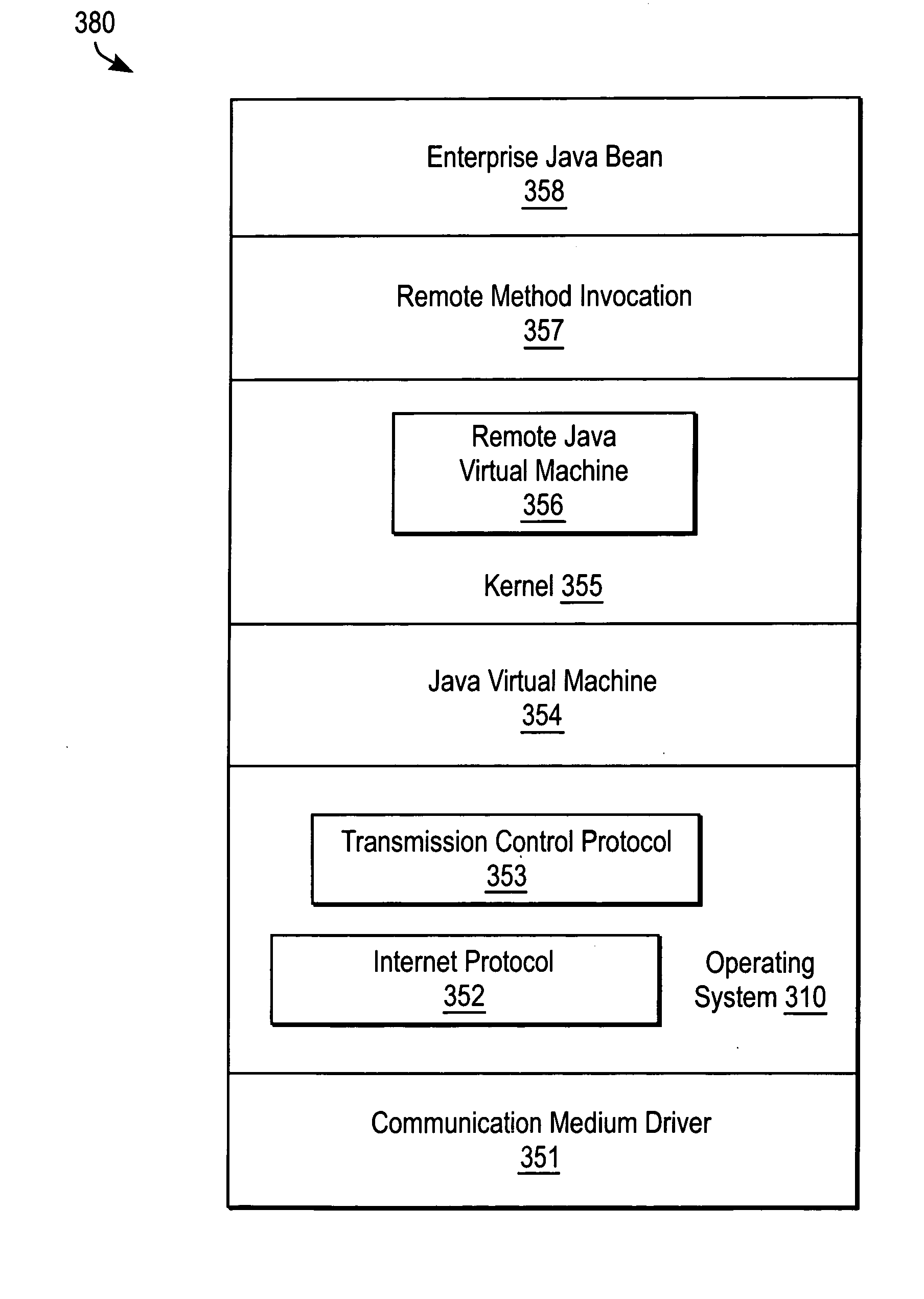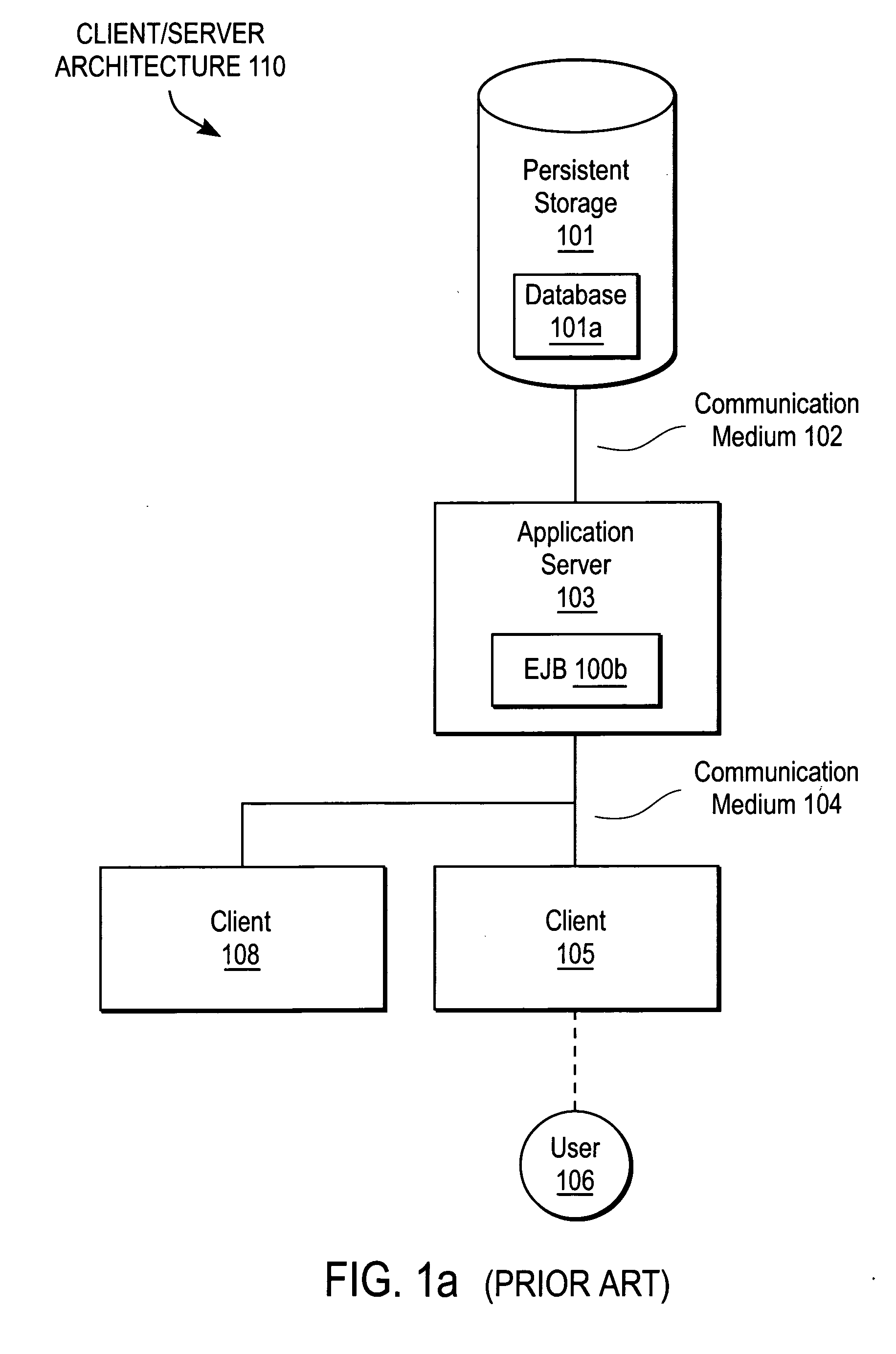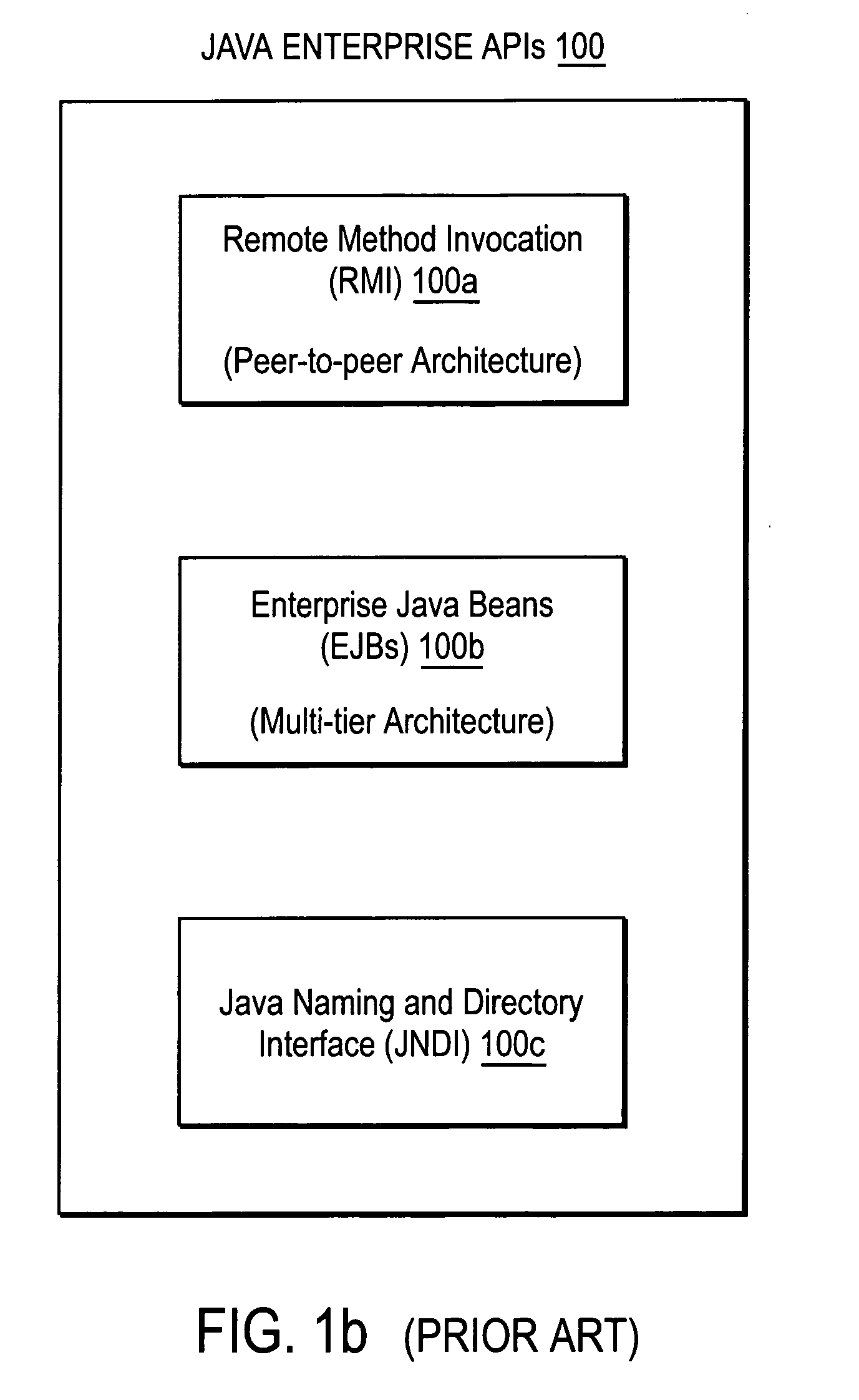Clustered enterprise JavaTM in a secure distributed processing system
a distributed processing system and enterprise javatm technology, applied in the field of distributed processing systems, can solve the problems of difficult maintenance of application code on clients, inability to meet the requirements of distributed processing system fault tolerance, etc., to achieve efficient load balancing and session concentration, improve the effect of fault tolerance of distributed processing system, and efficient scalability
- Summary
- Abstract
- Description
- Claims
- Application Information
AI Technical Summary
Benefits of technology
Problems solved by technology
Method used
Image
Examples
Embodiment Construction
I. Clustered Enterprise Java™ Distributed Processing System
[0076] A. Clustered Enterprise Java™ Software Architecture
[0077]FIG. 3a illustrates a simplified block diagram 380 of the software layers in a processing device of a clustered enterprise Java™ system, according to an embodiment of the present invention. A detailed description of a clustered enterprise Java™ distributed processing system is described below. The first layer of software includes a communication medium software driver 351 for transferring and receiving information on a communication medium, such as an ethernet local area network. An operating system 310 including a transmission control protocol (“TCP”) software component 353 and internet protocol (“IP”) software component 352 are upper software layers for retrieving and sending packages or blocks of information in a particular format. An “upper” software layer is generally defined as a software component which utilizes or accesses one or more “lower” software l...
PUM
 Login to View More
Login to View More Abstract
Description
Claims
Application Information
 Login to View More
Login to View More - R&D
- Intellectual Property
- Life Sciences
- Materials
- Tech Scout
- Unparalleled Data Quality
- Higher Quality Content
- 60% Fewer Hallucinations
Browse by: Latest US Patents, China's latest patents, Technical Efficacy Thesaurus, Application Domain, Technology Topic, Popular Technical Reports.
© 2025 PatSnap. All rights reserved.Legal|Privacy policy|Modern Slavery Act Transparency Statement|Sitemap|About US| Contact US: help@patsnap.com



